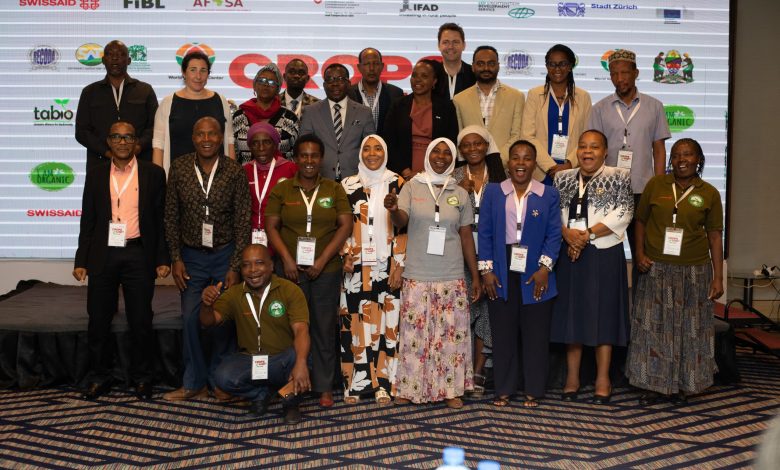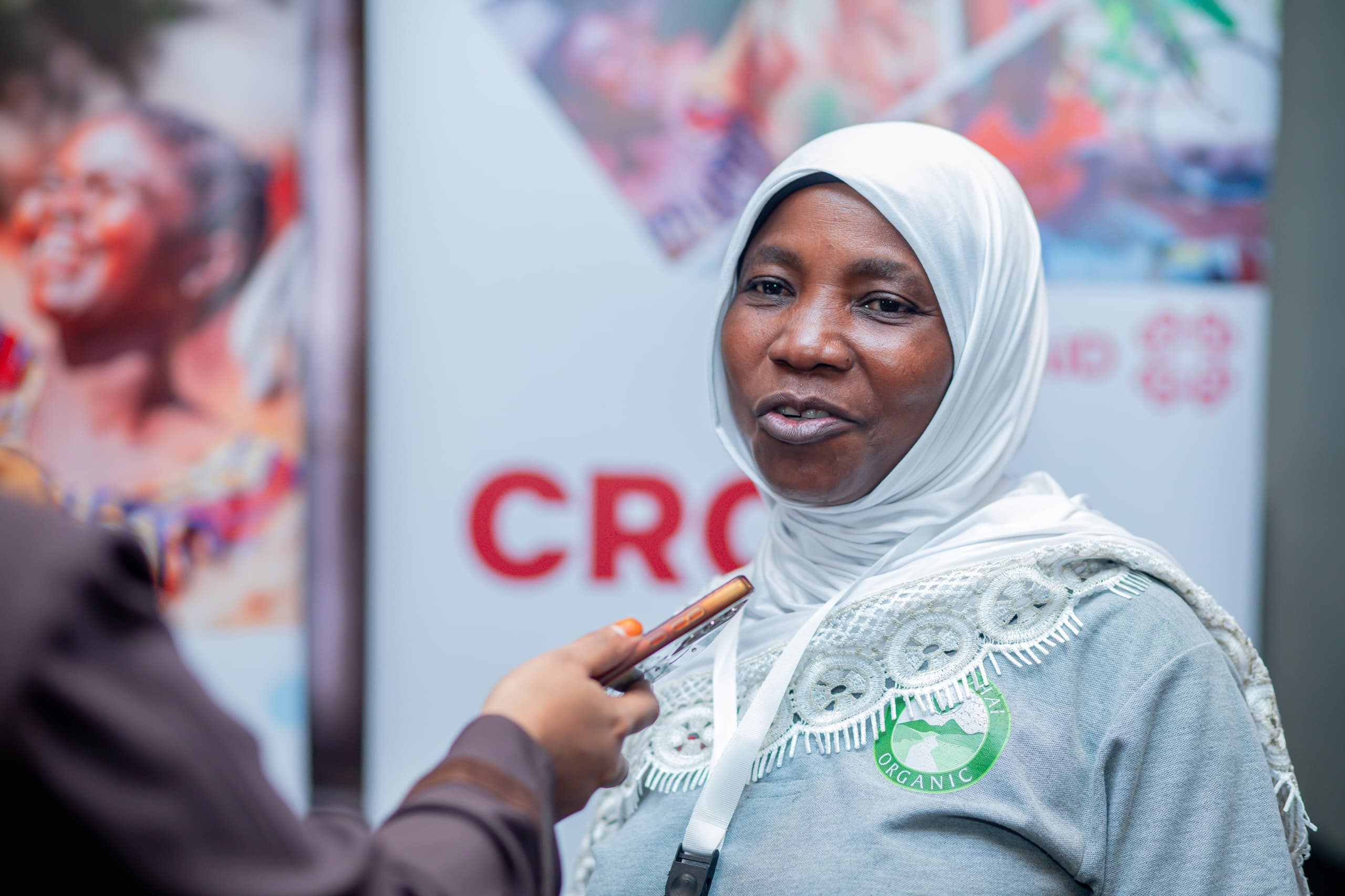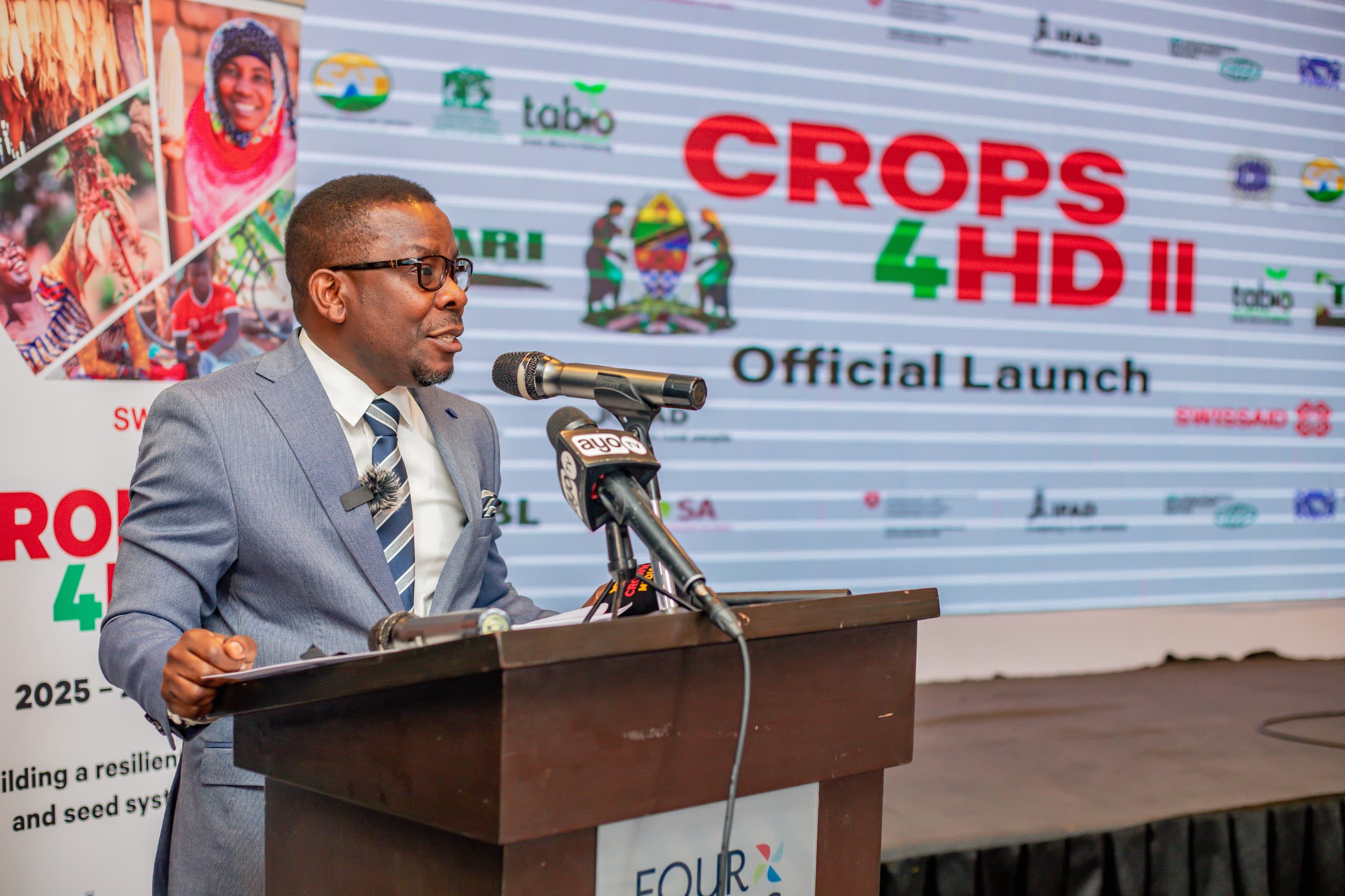16,000 Tanzanian farmers see fortune in CROPS4HD project

DAR ES SALAAM: OVER 16,000 Tanzanian farmers will benefit from the second phase of the CROPS4HD project, a regional initiative supported by international development partners and coordinated in Tanzania by SwissAid.
Also involved in the project is a broad coalition of agricultural organizations and institutions.
The launch of the second phase was held in Dar es Salaam and brought together key stakeholders, including government officials, development partners, farmer representatives, researchers, and civil society organizations working to promote sustainable and inclusive food systems.
The project is supported by donors including the Swiss Agency for Development and Cooperation (SDC), International Fund for Agricultural Development (IFAD), and the Embassies of Switzerland and the Netherlands.
Speaking at the launch, a Senior Programme Officer and National Coordinator of CROPS4HD at SwissAid, Veronica Masawe, said the project’s focus is to improve food and nutrition security, climate resilience, and the use of neglected and underutilized species (NUS) in Tanzanian agriculture.

“Through this project, we have established 15 community seed banks, trained over 8,000 farmers in ecological farming practices, and significantly increased access to indigenous seed varieties,” said Masawe.
“In this second phase, we will be working directly with over 16,000 farmers to scale up organic production, promote traditional crops, and support research that ensures the sustainability and accessibility of local seed systems.”
The CROPS4HD initiative, short for “Cropping Systems for Healthy Diets,” places a spotlight on traditional crops such as finger millet, amaranth (mchicha), African nightshade (mgagani), pumpkin seeds, and bambara nuts (njugu mawe). These crops, though once widely grown and consumed, have seen a decline in cultivation and market presence, often replaced by hybrid or imported varieties.
Representing the Ministry of Agriculture, Dr. Stephen Nindi, Deputy Permanent Secretary responsible for crop development, food security, and cooperatives, applauded the work done in the first phase of the project and emphasized the importance of strengthening traditional agricultural practices.

“We have seen that through the use of traditional seeds, farmers in Lindi and Mtwara have gained income, improved their health, and contributed to national food security,” said Dr. Nindi. “This project, supported by other development initiatives, has helped reduce food insecurity in those regions from 49 percent to 29 percent, which is a significant achievement.”
He added that the government is committed to ensuring that the success stories from Lindi and Mtwara are expanded to other regions in the country where there is a wealth of traditional seed diversity.
“The first phase helped us collect important baseline data and understand the availability of these traditional crops in our regions,” he said. “The second phase will deepen that work, expand the outreach, and ensure that both farmers and local communities fully benefit from these forgotten but valuable crops.”
The implementation of CROPS4HD in Tanzania is being led by SwissAid in partnership with national organizations, including SAT (Sustainable Agriculture Tanzania), RECODA, TOAM, TARI, I Am Organic (IAO), and BizyTech. Together, these institutions are working to provide farmer training, promote agroecological practices, and strengthen seed systems through innovation and community-based models.
The project also includes a strong research component, with collaborations between local researchers and the international CROPS4HD research coordination team to identify high-performing indigenous varieties that can be scaled sustainably.
In line with global efforts to achieve the Sustainable Development Goals (SDGs), particularly those related to zero hunger, climate action, and biodiversity, the CROPS4HD project aligns with Tanzania’s broader agricultural and environmental priorities.
ALSO READ: Yas, COPRA partner to digitise agriculture
As the project enters its second phase, emphasis will be placed not only on production but also on policy engagement, consumer awareness, and market development for traditional crops. Stakeholders at the launch stressed the need to shift mindsets from seeing indigenous crops as outdated to recognizing them as resilient, nutritious, and economically viable.
The launch concluded with a call for greater multi-stakeholder collaboration, data-sharing, and investment in local food systems that are climate-resilient, equitable, and rooted in Tanzania’s rich agricultural heritage.





